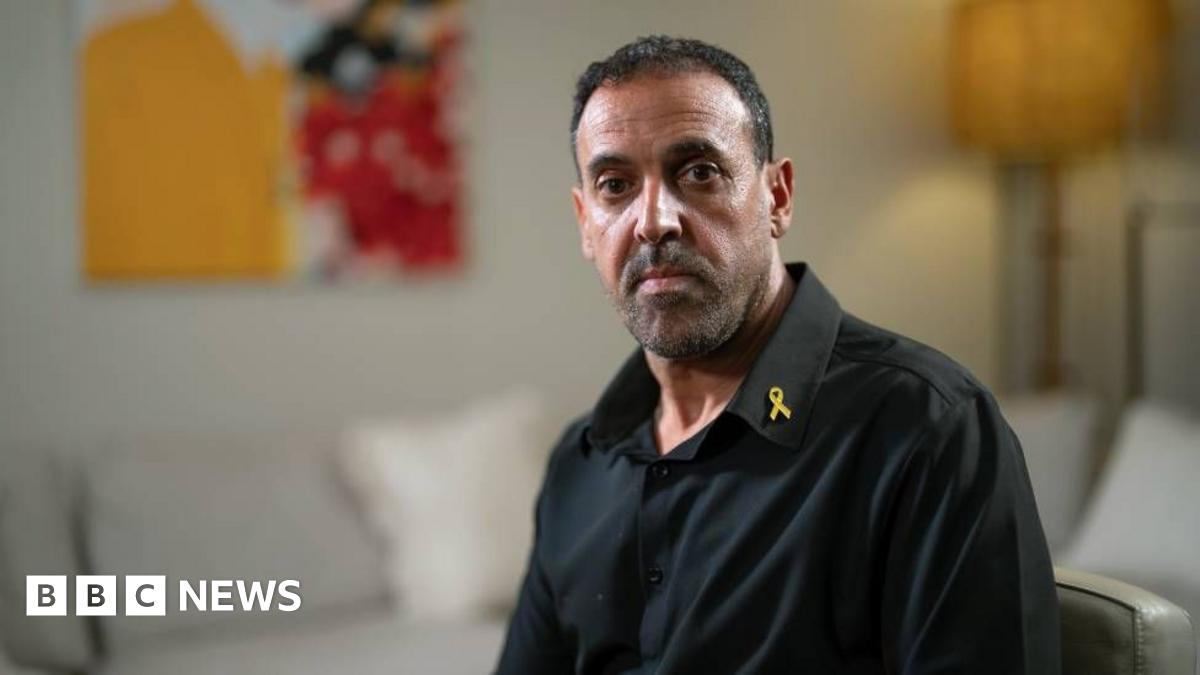The former hostage’s composure slips as he remembers the first phone call he made as a free man to his wife’s parents in Wales, to share his grief. It was a “very emotional” but “important” call. The funerals of his family were held in Israel while he was still in Hamas captivity not knowing their fate.
Mr Sharabi has shown remarkable resilience in the months since. He has campaigned across the world for the hostages – even meeting with President Trump in the Oval Office. “I ask him to finish the job and help all the others to come back as well,” he pleads.
He feels Trump was instrumental in helping secure his release in a hostage deal in February, echoing the US president’s vocal pressure in recent months on Israel and Hamas to find peace.
Asked by the BBC if he was worried the new peace plan might not happen, Mr Sharabi, speaking on Wednesday, replied: “Of course – very worried. Probably two days ago we were sure it’s very close, but it doesn’t look that close, unfortunately. Maybe I don’t know a few things, but I’ll be glad to be surprised.”
He said the proposal was “very good news” and people must “not lose our faith that one day there will be an agreement”.
He says he knows all too well what horrors the hostages are still experiencing as Hamas refuses to release them and Israel has expanded its military campaign. So far, more than 66,000 people have been killed in Israeli attacks in Gaza, according to the territory’s Hamas-run health ministry.
“Everybody knows when the war continues it puts the hostages’ life in risk. That’s not a secret. For me, when I want all the 48 hostages back today, tomorrow, I just want it to stop… War is awful, people are suffering from war, but we can’t forget who started that, and who’s the bad guy and who’s the good guy.”
He has written a book titled Hostage to ensure people are aware of his ordeal. Lianne, an avid reader, used to tell him he didn’t read enough – so he thinks she would be proud.
Though it is hard to carry on without his family, he says he doesn’t need memorial days to remember them.
“Yossi, Lianne, Noiya and Yahel are with me every day in my life, every moment. But I’m quite sure they will be alongside my life, not instead of my life.
“I don’t have the privilege to stay in bed and cry all day after my family and my friends fought for me for 500 days. It’s unacceptable for me to do it.”
In Israel, strangers approach and tell him he is a hero. His time as a hostage has strengthened his resolve to live despite the loss of his family.
“It was very tough, but I really, really love life… I’m trying to be positive. I’m working on that.”
